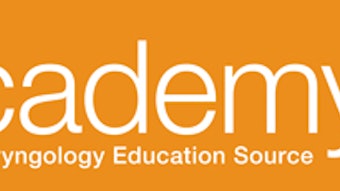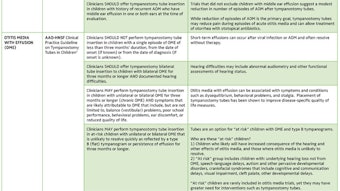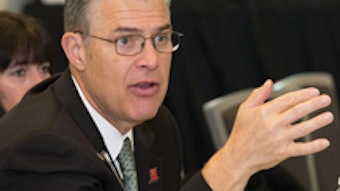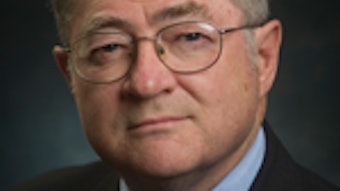Hot Topics and Slow (or No) Action: An Election Year Federal Legislative Update
The mid-term election year is upon us. So, what does that mean for our federal legislative priorities? Most election years promise to deliver a lighter-than-usual legislative schedule for lawmakers, and a general downtick in activity on the issues important to the specialty. While we already know the scheduling of fewer legislative days will remain true, the amount of activity and/or issue-specific dialogue for this year remains somewhat of a wildcard. Why, you ask? The bumpy rollout of Healthcare.gov during the last several months of 2013 has left a lasting spotlight on the ongoing implementation of the Affordable Care Act (ACA) and health-related issues in general. As a result, these issues are likely to remain prominent, if not the most critical issues discussed leading up to November’s mid-term elections. Read on for a brief overview of where our key legislative priorities may “register” in the ongoing dialogue. Medicare Physician Payment Repeal of the flawed Sustainable Growth Rate (SGR) formula used to determine payments to physicians in the Medicare system acted as a vacuum in 2013, dominating much of the legislative focus for the year. Despite these efforts, the fate of SGR-related legislation remained in flux as late as mid-December. However, hurried action by the Senate Finance and the House Ways & Means Committees resulted in the advancement of SGR repeal legislation prior to Congress adjourning for the holidays. In addition, language was included in the year-end budget agreement to temporarily (for three months) halt the scheduled SGR cuts and instead replace the payment reduction with a .5 percent increase. This payment “bridge” was largely put in place to provide additional time for lawmakers to further refine permanent SGR repeal/replacement legislation and identify the necessary offsets. Therefore, the SGR will remain a key policy issue this year. If Congress succeeds in repealing the SGR formula, the implementation of a new payment policy program will trigger a flurry of activity regarding the implementation of the new programs that many physicians—particularly surgeons—may have difficulty participating in. On the other hand, failure to repeal the SGR formula will “punt” a major—and costly—issue into an election year where fiscal policy will draw increased scrutiny. Audiology Direct Access Expect to hear a lot about “direct access” and general audiology-related issues this year. As reported in 2013, each of the respective audiology groups has been pursuing their own specific legislative initiatives. Based on current “intel,” it is highly likely that each group’s proposal will be introduced as legislation by early spring, at the latest. Notwithstanding the issue’s importance to our particular organization, we generally expect discussion regarding scope-of-practice issues to increase in the coming months/year. As more Americans obtain health insurance via the mandate in the ACA, some lawmakers view the expansion of services (by various non-physician providers) as a key means to mitigate assumed access-to-care issues. The AAO-HNS continues to support a physician-led, team-based approach to patient care. IPAB Repeal Repeal of the Independent Payment Advisory Board (IPAB) remains a top legislative priority for the AAO-HNS. In the last several months of 2013, Rep. Phil Roe, MD (R-TN), the lead sponsor of a bill to repeal the IPAB (H.R. 351), doubled efforts to obtain cosponsors on his legislation. As part of this push, various physician organizations, including the AAO-HNS, will be reaching out to past cosponsors and “newer” Members of Congress. The ultimate goal is to garner more than 218 cosponsors of H.R. 351, and to continue urging Congressional leaders to allow a “clean” vote on the legislation. Truth-in-Advertising While the “TIA” issue may not emerge as prominently as the SGR or scope-of-practice issues, the efforts of the AAO-HNS and others in the TIA coalition will increase this year to garner support for H.R. 1427, the “Truth in Healthcare Marketing Act of 2013.” Our goal is to further expand the cosponsor list and elevate the general awareness in Congress of this important legislation, as well as seek the introduction of a Senate “companion” bill. Medical Liability Reform The AAO-HNS continues to advocate for the implementation of substantive medical liability reforms. However, in the current hyper-partisan (and political) environment on Capitol Hill, it remains difficult to gain traction on broad liability legislation. However, the appetite for more targeted liability efforts may be increasing, and the potential cost-savings available through these efforts could be included in the election-year rhetoric. Funding for Graduate Medical Education The protection (and hoped for) increase in funding for GME remains a legislative quandary. Lawmakers tend to agree that the pipeline of physicians in training should be as robust as possible. However, that fact has not prevented cuts to existing GME funds from being regularly included in “offset” packages for various large legislative proposals. This year, it is possible that dialogue regarding the general funding mechanisms for GME will become woven into larger conversations about the overall healthcare delivery system. The bottom line is that while 2014 may not be a rich legislative year, it could become an action-packed discussion year, with many AAO-HNS priorities addressed and/or referenced in the context of broader healthcare-related election year dialogue. For more information regarding AAO-HNS federal legislative priorities, email legfederal@entnet.org.
The mid-term election year is upon us. So, what does that mean for our federal legislative priorities? Most election years promise to deliver a lighter-than-usual legislative schedule for lawmakers, and a general downtick in activity on the issues important to the specialty. While we already know the scheduling of fewer legislative days will remain true, the amount of activity and/or issue-specific dialogue for this year remains somewhat of a wildcard. Why, you ask? The bumpy rollout of Healthcare.gov during the last several months of 2013 has left a lasting spotlight on the ongoing implementation of the Affordable Care Act (ACA) and health-related issues in general. As a result, these issues are likely to remain prominent, if not the most critical issues discussed leading up to November’s mid-term elections. Read on for a brief overview of where our key legislative priorities may “register” in the ongoing dialogue.
Medicare Physician Payment
Repeal of the flawed Sustainable Growth Rate (SGR) formula used to determine payments to physicians in the Medicare system acted as a vacuum in 2013, dominating much of the legislative focus for the year. Despite these efforts, the fate of SGR-related legislation remained in flux as late as mid-December. However, hurried action by the Senate Finance and the House Ways & Means Committees resulted in the advancement of SGR repeal legislation prior to Congress adjourning for the holidays. In addition, language was included in the year-end budget agreement to temporarily (for three months) halt the scheduled SGR cuts and instead replace the payment reduction with a .5 percent increase. This payment “bridge” was largely put in place to provide additional time for lawmakers to further refine permanent SGR repeal/replacement legislation and identify the necessary offsets. Therefore, the SGR will remain a key policy issue this year. If Congress succeeds in repealing the SGR formula, the implementation of a new payment policy program will trigger a flurry of activity regarding the implementation of the new programs that many physicians—particularly surgeons—may have difficulty participating in. On the other hand, failure to repeal the SGR formula will “punt” a major—and costly—issue into an election year where fiscal policy will draw increased scrutiny.
Audiology Direct Access
Expect to hear a lot about “direct access” and general audiology-related issues this year. As reported in 2013, each of the respective audiology groups has been pursuing their own specific legislative initiatives. Based on current “intel,” it is highly likely that each group’s proposal will be introduced as legislation by early spring, at the latest. Notwithstanding the issue’s importance to our particular organization, we generally expect discussion regarding scope-of-practice issues to increase in the coming months/year. As more Americans obtain health insurance via the mandate in the ACA, some lawmakers view the expansion of services (by various non-physician providers) as a key means to mitigate assumed access-to-care issues. The AAO-HNS continues to support a physician-led, team-based approach to patient care.
IPAB Repeal
Repeal of the Independent Payment Advisory Board (IPAB) remains a top legislative priority for the AAO-HNS. In the last several months of 2013, Rep. Phil Roe, MD (R-TN), the lead sponsor of a bill to repeal the IPAB (H.R. 351), doubled efforts to obtain cosponsors on his legislation. As part of this push, various physician organizations, including the AAO-HNS, will be reaching out to past cosponsors and “newer” Members of Congress. The ultimate goal is to garner more than 218 cosponsors of H.R. 351, and to continue urging Congressional leaders to allow a “clean” vote on the legislation.
Truth-in-Advertising
While the “TIA” issue may not emerge as prominently as the SGR or scope-of-practice issues, the efforts of the AAO-HNS and others in the TIA coalition will increase this year to garner support for H.R. 1427, the “Truth in Healthcare Marketing Act of 2013.” Our goal is to further expand the cosponsor list and elevate the general awareness in Congress of this important legislation, as well as seek the introduction of a Senate “companion” bill.
Medical Liability Reform
The AAO-HNS continues to advocate for the implementation of substantive medical liability reforms. However, in the current hyper-partisan (and political) environment on Capitol Hill, it remains difficult to gain traction on broad liability legislation. However, the appetite for more targeted liability efforts may be increasing, and the potential cost-savings available through these efforts could be included in the election-year rhetoric.
Funding for Graduate Medical Education
The protection (and hoped for) increase in funding for GME remains a legislative quandary. Lawmakers tend to agree that the pipeline of physicians in training should be as robust as possible. However, that fact has not prevented cuts to existing GME funds from being regularly included in “offset” packages for various large legislative proposals. This year, it is possible that dialogue regarding the general funding mechanisms for GME will become woven into larger conversations about the overall healthcare delivery system.
The bottom line is that while 2014 may not be a rich legislative year, it could become an action-packed discussion year, with many AAO-HNS priorities addressed and/or referenced in the context of broader healthcare-related election year dialogue. For more information regarding AAO-HNS federal legislative priorities, email legfederal@entnet.org.














